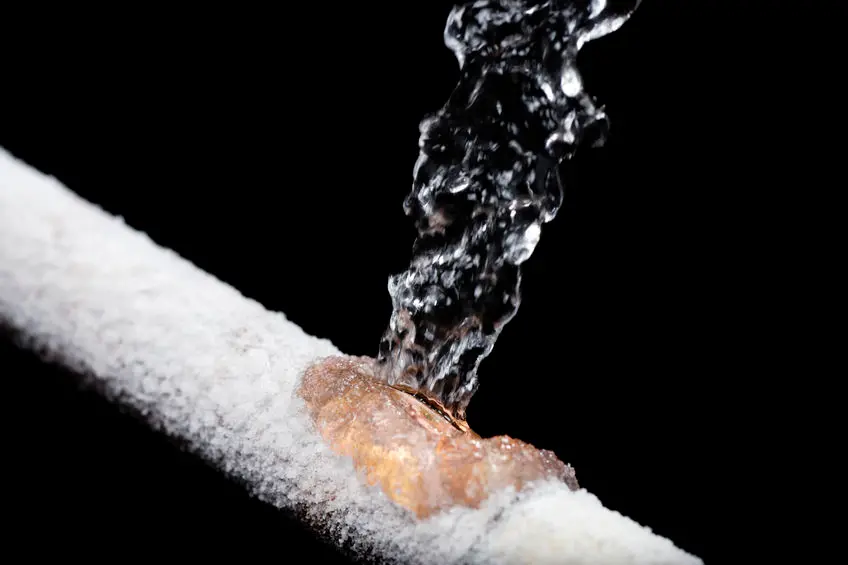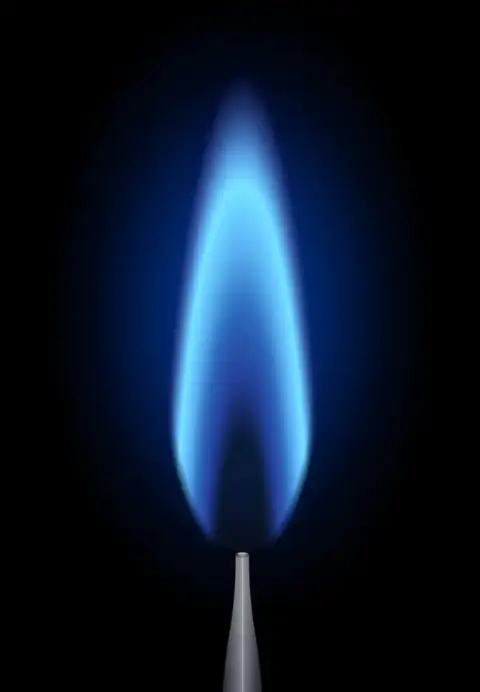Imagine waking up on a frosty January morning only to discover your heater isn’t working. Beyond the discomfort, HVAC issues like this can lead to costly repairs, inefficient energy use, and even safety risks.
The good news? Most heating-related problems are preventable with proper maintenance and awareness. In this month's post, we’ll break down common winter HVAC issues, what causes them, and how you can prevent them.
A Costly Winter Headache
Frozen pipes aren’t just inconvenient—they can lead to severe water damage and expensive repairs. When temperatures dip below freezing, water inside your pipes can freeze, expand, and ultimately cause the pipes to burst.
Signs of Frozen Pipes
- No water flow from faucets.
- Frost on visible pipes.
- Strange noises in the plumbing system.
How to Prevent Frozen Pipes
- Insulate Exposed Pipes: Use foam pipe insulation to protect pipes in unheated areas like the attic, basement, or garage.
- Keep Thermostat Above 60°F: Even if you’re away from home, maintaining a consistent temperature can help prevent freezing.
- Let Faucets Drip: A slow trickle of water keeps it moving and reduces the chance of freezing.
- Open Cabinets: Allow warm air to circulate pipes by keeping kitchen and bathroom cabinets open.
If you suspect frozen pipes, shut off the water supply and contact a professional immediately to avoid further damage.

Too Hot or Too Cold
Does one room in your home feel like an oven while another feels like an icebox? Uneven heating is a typical winter complaint caused by various factors, from blocked vents to poorly designed HVAC systems.
Causes of Uneven Heating
- Blocked or obstructed vents.
- Dirty air filters reduce airflow.
- Leaky or improperly sealed ductwork.
- Incorrect HVAC system size for your home.
Solutions for Consistent Heating
- Clean Air Filters: Dirty filters restrict airflow, so replace them every 1-3 months.
- Check for Obstructions: Ensure furniture, rugs, or holiday decorations aren’t blocking vents.
- Inspect Ductwork: Leaks or gaps in the duct system can lead to heat loss and uneven distribution.
- Consider Zoning Systems: If uneven heating persists, installing a zoning system allows you to control the temperature of individual rooms or areas more efficiently.
All Clogged Up
A dirty air filter might not seem like a big deal, but it can cause major HVAC problems. When filters are clogged, airflow is restricted, forcing your system to work harder to circulate heat. This leads to higher energy bills, reduced efficiency, and increased wear on your equipment.
Why Clean Air Filters Matter
- Improved indoor air quality.
- Reduced energy consumption.
- Prolonged lifespan of your HVAC system.
When to Replace Air Filters
- Every 1-3 months, depending on usage and whether you have pets or allergies.
- Check your system’s manual for specific recommendations.
Thermostats Gone Rogue
A faulty thermostat can throw off your entire HVAC system, making maintaining a comfortable indoor temperature difficult.
Common Thermostat Problems
- Incorrect readings or temperature swings.
- Unresponsive controls.
- Faulty wiring or low batteries.
How to Troubleshoot and Upgrade
- Replace Batteries: Start with a battery change if your Thermostat isn't responding.
- Clean and Calibrate: Dust or dirt on the sensors can affect performance. Clean according to the manufacturer’s instructions.
- Upgrade to a Smart Thermostat: A programmable thermostat can improve energy efficiency and give you better control over your home’s temperature.
Losing Your Pilot Light

A pilot light is a small, continuously burning flame that ignites the main burner to produce heat in a gas-burning system. If that pilot light goes out, you have no heat.
Why Pilot Lights Go Out
- Drafts or improper vent sealing.
- Dirty or damaged flame sensors.
- Gas supply issues or faulty components.
How to Fix Pilot Light Problems
- Seal Drafts: Ensure vent covers are securely placed and eliminate drafts in your furnace room.
- Clean the Flame Sensor: A dirty sensor can cause the pilot light to go out. If you’re unsure how to do this, call a professional.
- Contact an Expert: If the problem persists, a technician can inspect your system and resolve the issue safely.
Heat Pump Problems
Heat pumps are popular due to their energy efficiency, but winter weather can pose challenges.
Common Heat Pump Problems
- Frozen or blocked coils.
- Low refrigerant levels.
- Faulty starter capacitors.
Maintenance Tips for Heat Pumps
- Keep Outdoor Units Clear: Remove snow, ice, or debris from your heat pump to ensure proper function.
- Change Filters Regularly: As with furnaces, clean filters help maintain efficiency.
- Schedule Regular Maintenance: Annual tune-ups can catch issues early and keep your heat pump in shape.
The Silent, Deadly Threat
Carbon monoxide (CO) is an odorless, colorless gas that can result from a malfunctioning furnace or heat exchanger. This dangerous gas can cause serious health issues—or worse.
How to Protect Your Family
- Install CO Detectors: Place detectors near bedrooms and common living areas.
- Test Detectors Regularly: Replace batteries as needed and test monthly.
- Schedule Annual Furnace Inspections: A professional inspection can identify potential CO risks before they become hazardous.
If your CO detector alerts you to a leak, leave your home immediately and call emergency services.
Proactive Winter HVAC Maintenance Tips
The best way to avoid winter HVAC headaches is through proactive maintenance. Here are some steps you can take:
- Schedule Annual HVAC Inspections: CAST Heating & Air Conditioning can ensure your system runs efficiently all winter, and we can catch minor problems before they escalate.
- Invest in Proper Insulation: Well-insulated homes retain heat better, reducing strain on your HVAC system.
- Clear and Clean Vents: Regularly check for blockages and clean dust or debris from your vents.
- Upgrade to a Programmable Thermostat: Enjoy energy savings and precise temperature control with a smart thermostat.
Final Thoughts
Winter HVAC issues can be stressful, but with the proper knowledge and maintenance routine, you can keep your home warm, safe, and energy-efficient all season long.
If you’re experiencing HVAC problems or want to schedule a maintenance check, CAST Heating & Air Conditioning in Combine, TX, is here to help. Our team of professionals is ready to ensure your HVAC system is in top shape so you can enjoy a cozy and worry-free winter. Give us a call at (972) 955-2588, and we'll schedule the best time for us to come out and see you!
